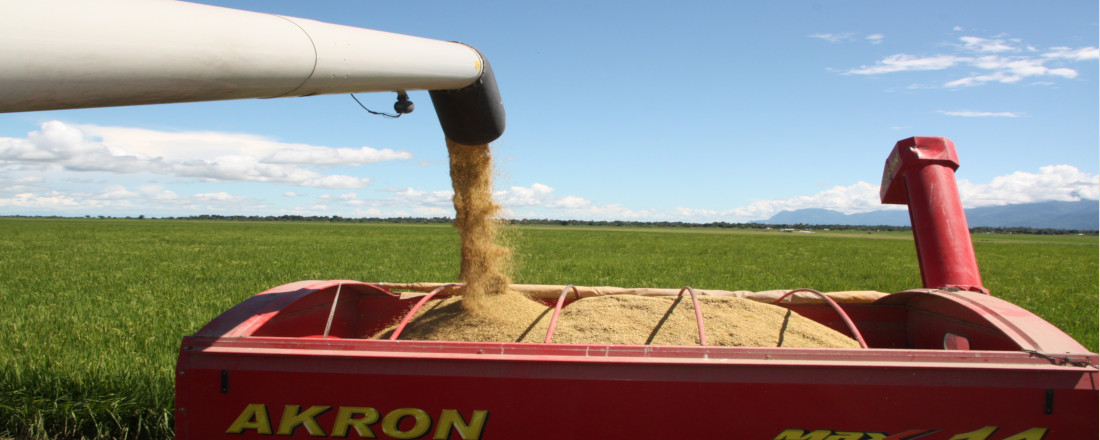The rise of agriculture as an alternative asset class
Team: Stefan Ouma, Mangasini Katundu (Moshi Cooperative University, Tanzania)
Runtime: 2017-2021 (DFG, before: Chair of Economic Geography, Goethe Universität Frankfurt (Prof. Dr. Peter Lindner)
Funding: Deutsche Forschungsgemeinschaft (DFG)
Since the financial and food price crisis of 2007-8, the world has seen a surge in financial investment in arable land and agricultural production. In fact, global finance has been identified as one of the main causes of the so-called global land frenzy. The subprime shock of 2007-08 created great uncertainty among financial market players. Investors were suddenly looking for new alternative asset classes that promised higher risk-adjusted and more stable returns than established asset classes such as bonds, equities and real estate. Consequently, financial investors have strongly championed agriculture as an alternative asset class in recent years. Factors that seem to make this a safe asset class are a growing world population, changing dietary preferences towards meat and protein in so-called emerging countries, increasing demand for agrofuels and carbon sinks in the face of peak oil production and climate change, limited availability of agricultural land, stagnating or declining productivity levels in core production regions and crop failures caused by climate change. There is a growing body of literature attempting to shed light on the financial market-driven land frenzy. This includes a wide range of investment modalities that help turn farmland or agribusiness stocks into tradable financial products. This is where this project comes in.
This project has three goals. First, it aims to provide a nuanced understanding of the global evolution of agriculture as an “alternative asset class” and its architecture and dynamics. The second objective is to examine how agriculture-focused investments (with a particular focus on private equity approaches) work in concrete economic, politico-institutional and agricultural contexts (using the example of Tanzania and Aotearoa New Zealand), using a case study approach is tracked. In order to map the specific dynamics, risks, opportunities and challenges along the agricultural investment chain in very different contexts, this project tries to cover the entire investment chain from the asset owners through different types of intermediaries (e.g. placement agents) to asset managers and invested farms/companies. Finally, as part of this project, specific farms/companies will be visited in order to gain a well-founded insight into the mechanisms of agricultural investments.
Website: http://institutionallandscapes.org/
Publications:
- Stefan Ouma: Farming as financial asset: global finance and the making of institutional landscapes. - Newcastle upon Tyne: Agenda Publishing, 2020. - XII, 208 S.
- Stefan Ouma: Agri-investment scholars of the world unite! : The finance-driven land rush as boundary object. In: Dialogues in Human Geography, (2022). - . doi:10.1177/20438206211069711
- Stefan Ouma: This can('t) be an asset class: The world of money management, “society”, and the contested morality of farmland investments. In: Environment and Planning A: Economy and Space, 52 (2020). - S. 66-87. doi:10.1177/0308518X18790051
- Stefan Ouma, Leigh Johnson, Patrick Bigger: Rethinking the financialization of "nature". In: Environment and Planning A: Economy and Space, 50 (2018). - S. 500-511. doi:10.1177/0308518X18755748
- Stefan Ouma: Situating global finance in the Land Rush Debate: A critical review. In: Geoforum, 57 (2014). - S. 162-166. doi:10.1016/j.geoforum.2014.09.006
- Stefan Ouma: From financialization to operations of capital : Historicizing and disentangling the finance–farmland-nexus. In: Geoforum, 72 (2016). - S. 82-93. doi:10.1016/j.geoforum.2016.02.003
- Stefan Ouma, Tobias Klinge: Commodities. In: Janelle Knox-Hayes, Dariusz Wójcik, Dariusz, (Hrsg.): The Routledge Handbook of Financial Geography. - New York: Routledge, 2021. - S. 208-231.

